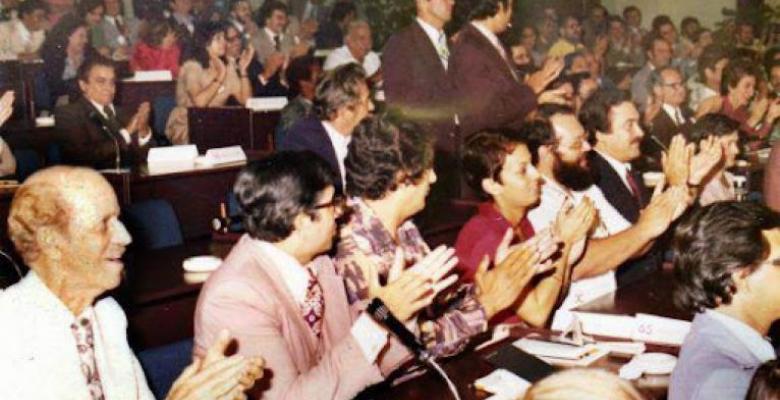Cuba and its emigration: 43rd anniversary of that first meeting
especiales

The 43rd anniversary of the first time —September 6th, 1978— the Revolutionary Government convened some meetings with part of the emigration based in the United States was celebrated in recent days.
Later known as the Dialogue of 1978, it was the beginning of a progressive rapprochement between the Cuban government and its community settled in the U.S.
Representing the Cuban government, The Dialogue of 1978 was led by Commander in Chief Fidel Castro. Other leaders such as Juan Almeida Bosque, Sergio del Valle, Osmany Cienfuegos, José Ramón Machado Ventura, and Ricardo Alarcón de Quesada attended as well.
As their counterparts, representatives of the Cuban emigration based in the U.S. attended. According to the information released by the Ministry of Foreign Affairs, all of them were welcomed, “regardless of their ideological interests, except for those who attempted against our people.”
The initiative was announced when, in a press conference on certain issues, Fidel answered that “we did not talk about it because it was a matter of national dignity and sovereignty. We do not discuss it, nor we ever will, with the Unites States government, as they solely are domestic affairs.”
Since the early 1970s, there was a good base for pushing for a dialogue. Some within the Cuban-American community disengaged themselves from the prevailing hostile stance against the Revolution.
In the opinion of former diplomat Ramón Sánchez-Parodi, quoted by Cubadebate in 2018, the assumption of power of Democrat James Carter was paramount for the carrying out of The Dialogue of 1978, as this President softened the politics of confrontation with Cuba.
During The Dialogue, it was discussed, among other issues, the possibility to create an institution in the island to address the issues of the community.
It was also addressed the non-recognized dual citizenship back then and the right to voluntary repatriation.
Intellectual Elier Ramírez Cañedo has pointed out that, in that first dialogue, representatives of the Cuban community settled in the U.S. also raised the possibility to participate in elections and political processes; and the right to vote, to elect, and be elected, as well as the right to possess an ID Card.
From that moment on, the Cuban government has convened other meetings with groups overseas. For instance, the Conferences on the Nation and Emigration held in 1994, 1995, and 2004.
The 4th Conference on the Nation and Emigration was scheduled for 2020, but it was postponed due to Covid-19.
Translated by Sergio A. Paneque Díaz / CubaSí Translation Staff













Add new comment